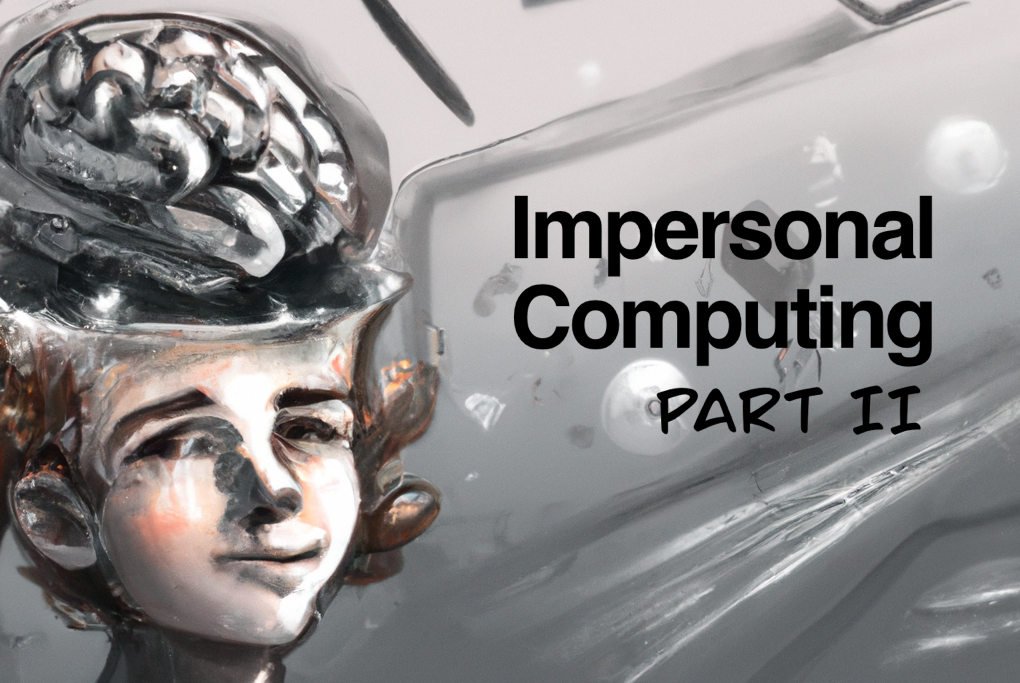Attentive About Attention

This is Part 2 of the Impersonal Computing series. Check out Part 1 and Part 3.
I love(d) Twitter. Before the mayhem that was unleashed by the @ElonMusk-induced meltdown¹, it was a great place to be online. Not only was it the fountainhead of most memes that float around various corners of the Internet, but there were also basically no ads! I always approached Twitter with a sense of curiosity and usually came away from my Twitter feed with an interesting idea or new pieces of trivia. But the real reason I liked it so much is that, unlike other social media platforms, it never made me feel like I was missing out on something.
Maybe that's why it never made any money.
One of the things that's probably unique to our time in history today is the prevalence of FOMO. It's not that it hasn't existed before; it's just that it's a bigger problem now, mostly due to social media. I'm pretty sure peasants in the Middle Ages didn't have the fear of missing out that we do now - they weren't seeing 200 people sharing pictures of the wedding feast in the village on the other side of the river.
FOMO is a symptom of a broader problem: it's the manifestation of our desire to be connected with others not being fulfilled. It comes when we are not present in our current situation and desire something else. This is why modern technology is so insidious: we have outsourced our ability to stand in the present moment. Our ability to preserve experiences afforded to us by modern technology prevents us from being fully present in said experiences.
This post is Part 2 of my reflections after a month of seclusion. The first part can be found here, but all parts are merely expansions on this one point:
More often than not, modern technology amplifies our impersonal attitude toward relationships, which is the root cause of our dissatisfaction with life.
One of the things we associate with modern technology and the ecosystem surrounding it (smartphones/social media/the Internet) is the idea of the "attention economy." The New York Times, the Wall Street Journal, Scott Galloway, and The New Yorker are all talking about it. Basically, an attention economy is one where people's attention is monetized, whether they like it or not.
The modern idea of an attention economy is new, but economies have always been about our attention. We hear economy and think of money, but money is merely how we quantify the value of our attention. Even things you wouldn't expect are products of multiple layers of attention, possibly priced according to the amount of attention that was required for it to exist, like a blue sweater that's actually cerulean. Even how we speak reflects this: we literally say, "Pay attention."
Attention is more important than time, too. People often conflate time spent on a task as a proxy for the attention required, but that's not the case either. Marketing understands this: it doesn't matter how many days an advertisement sits on a billboard if no one is there to pay attention to it. When someone close to you wants to spend time with you, they typically don't mean they want to sit in the same room with you silently. They want your attention.

The innovation of the modern attention economy is "personalized" content. But how personal is it? These "personal" experiences use an algorithm to identify similar interests across people, keep you on the app so they have your attention, and show you just enough suggested posts and ads that you don't complain. The assortment of posts on your Explore tab or FYP aren't made with your personal situation in mind - the content creators most likely don't even know who you are!
Social media is an agent of impersonalism because it incentivizes sharing everything with everyone. The higher satisfactions come from personal experiences, not the impersonal facsimile that we get through our phones. And the highest level of satisfaction is when there's intimacy: things that remain exclusive to you and the other person. That's not to say that we can't make personal connections through using technology, but the vast majority of people who meet online nowadays end up craving to meet in person (WFH is a separate thing).
Our attention is the only resource we have that is unique to us. It is the most personal of all our resources. We can think of holding our attention as mindfulness (mindful eating, mindful breathing, mindful exercise) or simply being present. The line from being present to personal connection is fairly straightforward to understand, too. How we show up in our relationships with others defines the quality and depth of our connection to the other person.
As spiritual practitioners, it may seem counterintuitive to give our most precious resource - our attention - to our relationships with other people. That conception originates from why most people turn to spiritual life: shit has hit the fan. There are other reasons: maybe someone's curious, maybe they're praying to win the lottery or have something go their way, or maybe they're searching for an Absolute. But most of the time, it's because their life is crumbling down around them.

Turning to spiritual life when frustrated by the responsibilities and relationships we have to deal with and escaping from the world sounds really appealing, but as pretty much everyone who takes that leap quickly realizes, it's not that easy. Spiritual life is built on taking responsibility for our relationships - the two most common things we're running away from! This is very easy to say but incredibly hard to do.
Every spiritual path emphasizes having a relationship with the higher power it believes in, with each path prescribing various levels of personal connection. Our dissatisfaction with our spiritual life comes when we haven't formed a personal connection with our higher power and those spiritual practitioners around us.
Next time, I'll dive deeper into why a personal attitude towards relationships is more satisfying than our impersonal attitudes, especially in spiritual life. I'll touch more on the advice I've received on all this, along with my reflections and suggested practices in Part 4. But I don't want to end without giving one little bit of advice: in the next two weeks, try and be mindful of where your mind goes throughout the day. Are you present in your relationships with others?
In other words: try being attentive to your attention.
Happy to be present,
-Sid
¹|Peak Twitter was in 2014 when the bots and politics hadn't quite arrived, and Vine was alive and kicking. Everything has been downhill since, and now it's basically broken. RIP Twitter.




